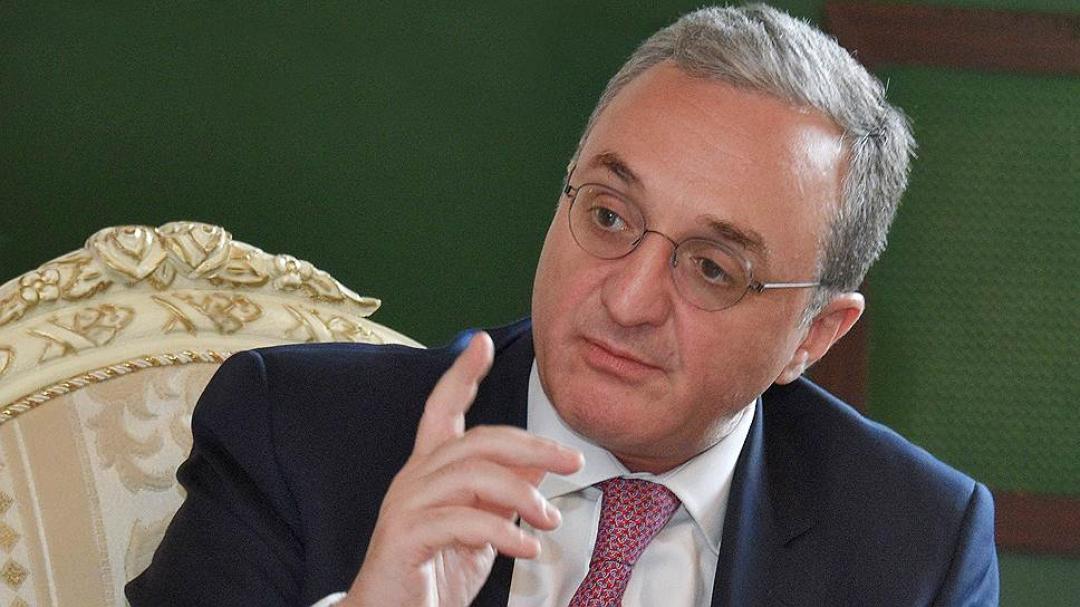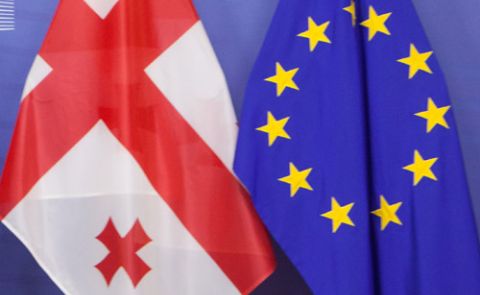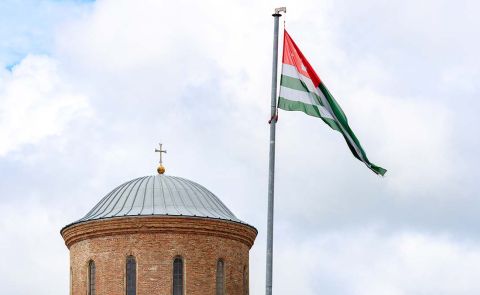
Political crisis in Armenia: Foreign Minister sacked

On 16 November, Armenia’s Prime Minister Nikol Pashinyan said that he decided to sack the country’s Foreign Minister Zohrab Mnatsakanyan following the parliament's discussion of Mnatsaknyan’s administration handling of the Nagorno-Karabakh war.
“Since the beginning of the war when there were options as to how we can come to an agreement to end the war, if not at the very beginning, from the X moment. [N]ow we can check, maybe in 5 days, 6 days, 7 days, the topic of return of Shusha appeared on the agenda; this is an undeniable fact; that is, there were such good options and that option was not signed? On this occasion, I would like to say that I have made a decision to dismiss Mnatsakanyan,” he said. Pashinyan also announced further changes within the government. “The changes will be in such a way and within those timeframes that it will not be for showing a direct action, but will bring changes in content and efficiency; that is, it is better to think, then do something, instead of doing, then thinking,” he stated.
The spokesperson of Armenia’s Foreign Ministry Anna Naghdalyan stated shortly afterwards that Mnatsakanyan himself decided to step down from his position. She also contradicted Pashinyan’s statement who claimed that the peace proposals made by US, Russian and French mediators in recent years called for the restoration of Azerbaijani control over Shusha. “The issue of giving up Shusha was not raised during any stage of the peace process,” Naghdalyan wrote on Facebook. Mnatsakanyan’s adviser Ruben Karapetyan also submitted his resignation, as well as the deputy chairman of the State Revenue Committee Mikael Pashayan and the chief of Armenia’s military-industrial committee Artur Davtyan.
Earlier, Pashinyan faced a lot of criticism from his fellow party members after his most recent Facebook post where he praised Armenian soldiers remaining on the Nagorno-Karabakh frontlines and voicing vocal support for his administration amid opposition protests in Yerevan. “Guys, you are right. I am waiting for you in Yerevan,” he wrote, calling on them to help him “sort out” his “whimpering” detractors.
Pashinyan’s post was even condemned by the country’s Human Rights Ombudsman Arman Tatoyan. He noted that in recent days the pro-Pashinyan combatants in Nagorno-Karabakh have circulated video messages containing death threats and hate speech against the prime minister’s political opponents and that Pashinyan endorsed those threats with his recent post.
Also, the ruling My Step parliamentarians Gayane Abrahamyan and Lusine Badalyan put down their mandates, while Taguhi Tovmasyan left the My Step faction, following Pashinyan’s post. The main assistant to Armenia’s Deputy Prime Minister Varag Siseryan also left his position after the post.
Meanwhile, the representative of the Armenian Revolutionary Federation (Dashnaktsutyun) Supreme Body Ishkhan Saghatelyan presented a roadmap drawn up by 17 opposition parties to resolve the crisis in the country that was sparked by Pashinnyan’s signing of the Nagorno-Karabakh agreement with Azerbaijan’s President Ilham Alieyev and Russia’s President Vladimir Putin. Saghatelyan stated that the signing of the agreement was unacceptable, but the deployment of Russian peacekeepers in Nagorno-Karabakh is a necessity in the current conditions. The plan states that it was necessary to try to reduce the concessions Armenia made to a minimum through negotiations and diplomatic channels. “First of all, it is necessary to exclude the consolidation of Nagorno-Karabakh as part of Azerbaijan and fight for its independence,” he said. The next step foresees Pashinyan’s resignation. The third and final step should foresee that the country’s National Assembly should elect a new Prime Minister, form an interim government of national accord, which would solve three main problems, namely: 1) revise the agreements provided for by the declaration of a ceasefire and minimise the losses of the Armenian side; 2) take steps to resolve all humanitarian, social, health, economic and security problems arising from the war; 3) organise free, fair parliamentary elections, as a result of which the people will form a new government.
It was also reported that one of the opposition leaders Artur Vanetsyan (Hayrenik party) was released from custody after being detained by the country’s National Security Service (NSS). Besides Vanetsyan, Vahram Baghdasaryan (Republican party) was also released from custody.
See Also


BP Strengthens Presence in Azerbaijan’s Offshore Energy Sector

Netanyahu’s Letter to Aliyev: Mutual Trust, Solidarity Following Hamas Attacks, Facilitating Dialogue Between Israel and Türkiye

Azerbaijan Expands JF-17 Thunder Fighter Jet Order from 16 to 40 Units

EU Commissioner and NATO PA Warn Georgia Over Democratic Decline Amid Accession Challenges

